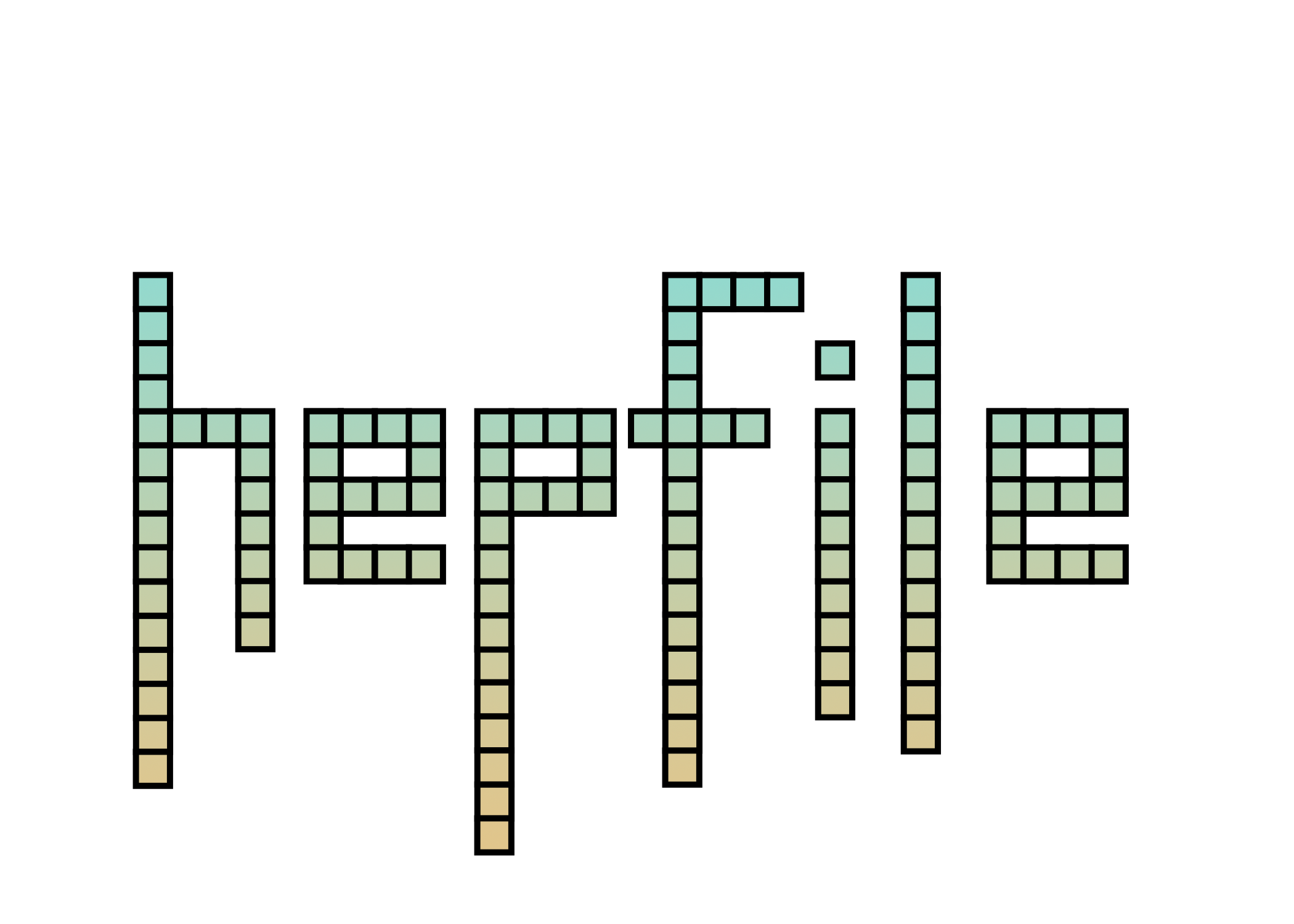Converting JSON Files to Hepfiles#
As a side note, since there are many different so-called legal JSON file formats, it would be nearly impossible to generate a completely robust JSON file to hepfile converter. So, we have attempted to make it as easy as possible with the existing software. This tutorial works with a specific JSON file format that is especially easy to convert to a hepfile but it should be possible to do it with others as well!
[1]:
import hepfile as hf
import json
Say we have the following json text of events with the same sample data from the Writing hepfiles from dictionaries tutorial.
{
'event1': {
'jet': {
'px': [1,2,3],
'py': [1,2,3]
},
'muons': {
'px': [1,2,3],
'py': [1,2,3]
},
'nParticles': 3
},
'event2': {
'jet': {
'px': [3,4,6,7],
'py': [3,4,6,7]
},
'muons': {
'px': [3,4,6,7],
'py': [3,4,6,7],
},
'nParticles': 4
}
}
In python, we can write this to a json file using the following code:
[2]:
# define a file path
jsonfile = 'json-output.json'
# define this json text as a dictionary
events = {
'event1': {
'jet': {
'px': [1,2,3],
'py': [1,2,3]
},
'muons': {
'px': [1,2,3],
'py': [1,2,3]
},
'nParticles': 3
},
'event2': {
'jet': {
'px': [3,4,6,7],
'py': [3,4,6,7]
},
'muons': {
'px': [3,4,6,7],
'py': [3,4,6,7],
},
'nParticles': 4
}
}
# write it out to a json file
with open(jsonfile, 'w') as f:
json.dump(events, f)
Once we have created our json file, we are at the step that most of you will be at when trying to convert a JSON file to a hepfile.
The first step is to read in the json file
[3]:
with open(jsonfile, 'r') as f:
jsondata = json.load(f)
print(type(jsondata))
print(jsondata)
<class 'dict'>
{'event1': {'jet': {'px': [1, 2, 3], 'py': [1, 2, 3]}, 'muons': {'px': [1, 2, 3], 'py': [1, 2, 3]}, 'nParticles': 3}, 'event2': {'jet': {'px': [3, 4, 6, 7], 'py': [3, 4, 6, 7]}, 'muons': {'px': [3, 4, 6, 7], 'py': [3, 4, 6, 7]}, 'nParticles': 4}}
As you can see, this is the same data as the writing hepfiles from dictionaries tutorial but stored in a dictionary instead of a list. So, the next step is to convert this to a list of dictionaries to write to a hepfile.
[4]:
dictlist = []
for key in jsondata.keys():
dictlist.append(jsondata[key])
print(dictlist)
[{'jet': {'px': [1, 2, 3], 'py': [1, 2, 3]}, 'muons': {'px': [1, 2, 3], 'py': [1, 2, 3]}, 'nParticles': 3}, {'jet': {'px': [3, 4, 6, 7], 'py': [3, 4, 6, 7]}, 'muons': {'px': [3, 4, 6, 7], 'py': [3, 4, 6, 7]}, 'nParticles': 4}]
So, now we have it in a form that makes it easy to use the existing hepfile software. All we need to do from here is call the hepfile.dict_tools.dict_to_hepfile function.
[5]:
out_filename = 'output_from_json.h5'
data = hf.dict_tools.dictlike_to_hepfile(dictlist, out_filename)
data
[5]:
{'_GROUPS_': {'_SINGLETONS_GROUP_': ['COUNTER', 'nParticles'],
'jet': ['njet', 'px', 'py'],
'muons': ['nmuons', 'px', 'py']},
'_MAP_DATASETS_TO_COUNTERS_': {'_SINGLETONS_GROUP_': '_SINGLETONS_GROUP_/COUNTER',
'jet': 'jet/njet',
'jet/px': 'jet/njet',
'jet/py': 'jet/njet',
'muons': 'muons/nmuons',
'muons/px': 'muons/nmuons',
'muons/py': 'muons/nmuons',
'nParticles': '_SINGLETONS_GROUP_/COUNTER'},
'_LIST_OF_COUNTERS_': ['_SINGLETONS_GROUP_/COUNTER',
'jet/njet',
'muons/nmuons'],
'_SINGLETONS_GROUP_/COUNTER': [1, 1],
'_MAP_DATASETS_TO_DATA_TYPES_': {'_SINGLETONS_GROUP_/COUNTER': int,
'jet/njet': int,
'jet/px': numpy.int64,
'jet/py': numpy.int64,
'muons/nmuons': int,
'muons/px': numpy.int64,
'muons/py': numpy.int64,
'nParticles': numpy.int64},
'_META_': {},
'jet/njet': [3, 4],
'jet/px': [1, 2, 3, 3, 4, 6, 7],
'jet/py': [1, 2, 3, 3, 4, 6, 7],
'muons/nmuons': [3, 4],
'muons/px': [1, 2, 3, 3, 4, 6, 7],
'muons/py': [1, 2, 3, 3, 4, 6, 7],
'nParticles': [3, 4]}
So, while it is difficult to create software to convert every possible JSON file format out there to a hepfile, it is relatively easy and straightforward to implement the existing functions in hepfile to perform this conversion!
